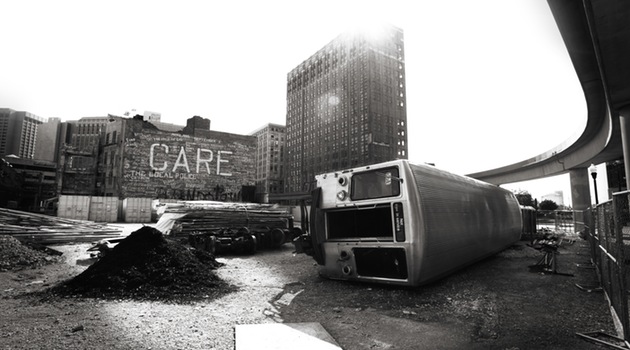Before we get started here, I’m going to make a confession. Prior to the nightmare of what-the-fuckery that began on November 8, I did exactly two things for the Clinton campaign: I made a single donation while sitting in bed in my pajamas, and I ordered a free Stop Bigotry sticker which I never actually got around to putting on my car.
Because of this, once the dust of post-election disbelief had settled, I felt the need to hit the ground running. While my friends reeled and grieved because they’d tried so hard for nothing, the shame of knowing I hadn’t tried at all moved me to throw myself into every cause I came across. I read every article. I signed every petition. I called my representatives. I made stacks of frantic to-do lists.
During this time, a lot of people were talking about the importance of self-care in the aftermath of the election. Breathe, they said. Take a bath. Call your mom. Here’s a picture of some puppies. Is everybody feeling okay?
All of that was fine for other people. The people whose lives and rights were now endangered because of the sort of inaction I was guilty of – those people could process. They could take bubble baths. I had to get out there and fight.
The thing about fighting, though, is that really, you have only one weapon: yourself. You can march in the rallies, you can go to the meetings, you can stay up late poring over all the books you should have read in college, but no matter how passionately you throw yourself into these things, the only tool you have to work with is one with inherent limits. Your body can only coast on endorphins and adrenaline for so long. The further you drag it past its comfort level, the less it works – and your brain goes right along with it.
Last summer, a member of my immediate family was in a coma for a month after suffering what can loosely be described as an aneurysm. Following a successful surgery, he was scheduled to be taken out of sedation over the course of several weeks. I had flown from New Orleans to California to be with my family during his surgery, and I wasn’t sure I could stay long enough to be there when he woke up without compromising my job and income; I was distraught, determined to be there for him but faced with considerable consequences.
During this time, a friend of mine weighed in with a simple reminder: “This is a marathon, not a sprint.” While it seemed like the most important thing in the world to be there the moment his eyes opened and he came back to a changed life, that moment wasn’t the only one he would need support in. Weeks, months down the line, he would still need to figure out the details – sometimes profound, sometimes mundane – of how to return to normal life. Giving up everything just to be there at the most dramatic moment, and compromising my ability to provide consistent support throughout what was to come, simply didn’t make sense.
What I’m trying to say is this: folks, this is a marathon. A four-year marathon (because, so help us God, it’ll be only four) which will require much more of us than we are used to giving. If you want to be a warrior, that’s great. But warriors don’t wake up one day and stroll onto the battlefield. They train. They hone. They take the time to equip themselves with the skills and strength necessary to go out there and get things done.
It may look like history is made through the grand, dramatic actions of a handful of heroic souls, but those actions are just the most visible peak of a foundation of consistent effort. Yes, we need people storming the gates. But we also need people in the background, preparing for when those in the front lines need to tap out. We need people sitting in quiet rooms planning the next move. We need people raising children and growing food while the battle’s being waged, because the world doesn’t stop even for an apocalypse.
Even if it’s the last thing you feel like doing, self-care is as integral to the revolution as action. If you’re not sure how to start, the basics are very simple:
1. Eat. Eat vegetables, eat protein, eat enough. If your activity levels have changed, feed yourself accordingly.
2. Sleep. Give yourself time to sleep, and adjust your evening habits to make sleeping easier (cut off Internet/social media half an hour before sleep, take some melatonin, reduce light/noise in your environment, etc.).
3. Drink water. So much water. Get used to taking a water bottle (or several) wherever you go.
4. Exercise. This doesn’t have to mean hitting the gym, either – just do something that’s strictly physical. Stretch, dance, go for a run. Have sex while your insurance still pays for birth control.
5. Go outside. Even if “outside” is a dumb little stream across from the parking lot outside your office building, put yourself somewhere where you can easily focus on nature.
That should get you started. If you need more specific suggestions, here are a few things that have worked for me:
6. Laugh. Be with friends, watch a stupid movie, get your dog to do that thing with his nose.
7. Build rituals. If you’ve raised a child (or even a pet), you know that consistency is a big part of creating a stable environment. Whether it’s balancing your checkbook or listening to your favorite podcast, make some habits that can be pillars of consistency in your daily life.
8. Give yourself concrete, feasible tasks. If that means calling your senator or donating to Planned Parenthood, great – but if you have to start with cleaning your closet just to get some sense of accomplishment or control, that’s okay too.
9. Pace your news intake. There’s a lot of information flying around right now, and it’s more important than ever to be informed – but again, remember, your brain has limits just like the rest of your body. Bookmark or make lists of things you want to read or research, but don’t gorge yourself on information. You’ll retain and process it better if you take it in controlled doses.
10. Self-care together. It can be hard to take care of yourself when you’ve been conditioned to prioritize others, so do both. Reach out to your friends and find things you can do together, and support each other in taking care of yourselves.
And lastly…
11. Freak the fuck out. Getting things done often means keeping your emotions in check, so it’s important to balance that with letting yourself feel what you’re feeling when it’s safe to. If you need to be alone to do that, give yourself time to be alone. If you need to be with people to do that, find a time when you can surround yourself with the right people.
However difficult it might be, force yourself to recharge – and then charge.
 Betsy Arant is a writer and farm worker living in New Orleans. Her work has been featured in Cricket Magazine, The Iowa Source, University of Wisconsin Flash Fiction, The Green Room, Art Scene, Go World Travel, and the Yahara Journal. Her literary installations have appeared in the Wormfarm Institute’s Woolen Mill Gallery and Farm Aid.
Betsy Arant is a writer and farm worker living in New Orleans. Her work has been featured in Cricket Magazine, The Iowa Source, University of Wisconsin Flash Fiction, The Green Room, Art Scene, Go World Travel, and the Yahara Journal. Her literary installations have appeared in the Wormfarm Institute’s Woolen Mill Gallery and Farm Aid.


0 comments on “Self-Care in a Time of Revolution”